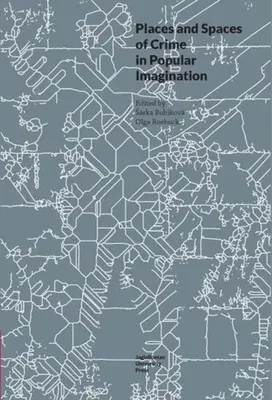The publication Places and Spaces of Crime in Popular Imagination is
part of the Topographies of (Post)Modernity: Studies in 20th and 21st
Century Literature in English Series. The text reflects growing
interest in popular literary genres not only among the readers, but
mainly in literary research. This still rather under-researched area is
now representing fertile grounds for various theoretical approaches. As
the publication mainly declares its interest in crime-related genres,
its focus on place is justifiable: it reflects the postmodern "spatial
turn", manifested in an increased emphasis on the location of crime, not
necessarily in the sense of the crime scene itself, but as a
socio-geographical place and space.
The setting of crime has a specific and well-defined role in the
traditional crime genres, but this role has been redefined in the modern
versions of crime-related fiction. ranging from educating the reader in
certain areas, bringing up current problems, deepening the psychological
aspect of individual characters etc. The published volume brings forth
various aspects of this new role of place in popular genres centering on
crime and gives space to its deeper analysis. It is not the researchers´
objective to provide overviews of the history of the theoretical
discussion of place and space in literature in general. Instead,
although the essays do employ a variety of critical approaches, the
collection strives to show practically how place and space is employed
in the specific material of the selected works.
The seven chapters are written by scholars from the Czech Republic,
Poland and Slovakia. Two essays represent London as a topos and a
chronotope in the works by contemporary British writers of crime
fiction. The selection is to show how varied the literary London can be,
albeit in the often rather formulaic popular genre. The essays also
document a shift from the country setting typical for the British Golden
Age of detective fiction to the more recent urban focus. One
contribution focuses on the genre of spy novel to show how rendering of
place and space can contribute to the genre's typical atmosphere of
suspense, secrets and disquiet. Four more essays analyze a variety of
places and spaces in American crime fiction, crime comics and crime
film. All of the places are in some way specific to American milieu -
the suburbia, the university campus, the wilderness, a holiday resort
with a state park. These essays are designed to show the contemporary
variety of places where crime literature (or film) is set and to
document a shift from the traditional urban setting of American
hard-boiled fiction to a far greater recent diversity.
The volume brings together most recent central European research on the
topic of place and community in popular imagination. Thus, it represents
a unique insight into this growing phenomenon, which can no longer be
overlooked by the academic community.

